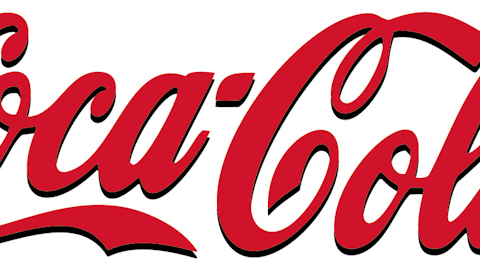Mastercard is a global payment solutions company providing services ranging from credit and debit card to other payment programs of financial institutions. It has three major income sources: 1) Domestic assessments, which are fees charged to issuers and acquirers on the volume of activity on cards and other devices; 2) Cross-border volume fee; 3) Transaction processing fee. Other sources include service fees and rebates and incentives. Thus, like Visa, Mastercard does not take on credit risk. Domestic assessments, Cross-border volume fee and Transaction fee accounted for 35%, 24% and 30%, respectively, of gross revenue for the quarter ending March 2013.
The stock, like that of Visa, posted good performance and has yielded a healthy one-year return of more than 33%. The company has posted strong earnings growth over the years aided by the growing use of credit cards and its smaller market share, compared to Visa, which allowed it to expand aggressively. However, these encouraging fundamentals are not strong enough to justify a high forward P/E of 20. In terms of valuations, I believe the stock is overvalued and investors must wait for a reasonable entry point.
Risks and conclusion
Although the macroeconomic environment had been encouraging lately, the businesses mentioned above remain highly leveraged to consumer sentiments and therefore a fall in the confidence level of consumers would result in lower spending levels, causing a hit to the businesses’ earnings. However, current U.S. consumer spending levels are encouraging; consumers are spending on average $90, up from $80 in January 2013, on a daily basis. This highlights that Americans have largely withstood the payroll tax hit. This also bodes well for American Express’s stock, which at current valuation still has room to grow. It is a fact that globally, people are switching to cards for its ease and all three companies mentioned in the article stand to benefit from this trend.
American Express has a unique position to tap the growing market through its premium service and charge both interest and discount rate as transaction volumes expand. Domestically, as the U.S. economy improves and interest rate rise, I expect spending to increase and interest revenues on balances to go up as well. While Visa and Mastercard also stand to benefit from the rising use of cards, I believe that they are currently unattractive from an investment point of view. Below in the table we see a quick comparison of the valuations.
| American Express | Visa | MasterCard | |
|---|---|---|---|
| Forward P/E | 14.5 | 22.5 | 20x |
Furthermore, according to Financial Times, the consensus forecast among 28 polled analysts advices that American Express will outperform the market. For reasons explained above, I believe that among its competitors, American Express is the most attractively positioned stock for fundamental investors. Investors can also consider Visa and Mastercard as solid investments after a pullback.
The article American Express Is Still Cheap originally appeared on Fool.com and is written by Syed Shah.
Syed Shah has no position in any stocks mentioned. The Motley Fool recommends American Express, MasterCard, and Visa. The Motley Fool owns shares of MasterCard. Syed is a member of The Motley Fool Blog Network — entries represent the personal opinion of the blogger and are not formally edited.
Copyright © 1995 – 2013 The Motley Fool, LLC. All rights reserved. The Motley Fool has a disclosure policy.



